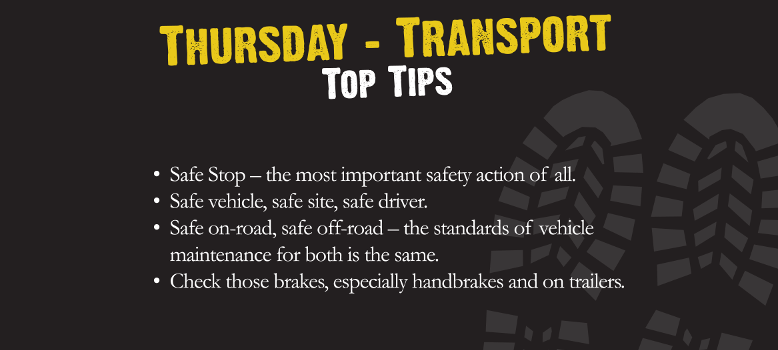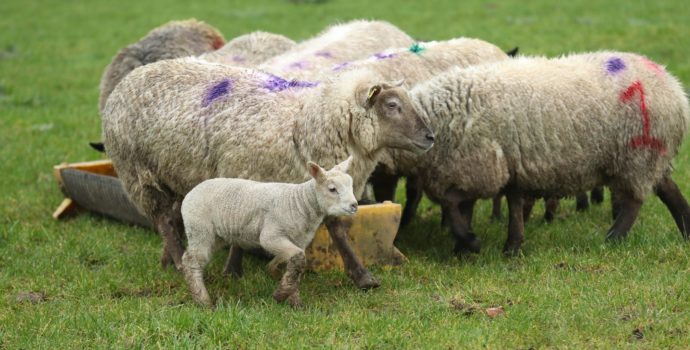Transport Is the Theme for Day Four of Farm Safety Week

Tractors and moving vehicles have claimed the lives of 30 farm workers in the past five years according to the HSE Health & Safety in Agriculture Report October 2015, representing one of the biggest dangers on a farm. Day Four of the fourth annual Farm Safety Week UK & Ireland focuses on highlighting the issues surrounding transport and how to prevent transport related accidents on the farm.
Farm Safety Week (July 4th to 8th) aims to cut the toll of accidents which continue to give agriculture the poorest record of any occupation in the Ireland and the UK. The awareness week offers five days of themed practical farm safety advice and guidance to farmers and urges farmers to consider ‘Who Would Fill Your Boots?’ if you had a farm accident.
Speaking at the RABDF panel discussion on the second day of the Livestock Event at the NEC, IFA Deputy President Richard Kennedy said: “Farm Safety is something that we are particularly keen to pioneer. It has been said that farming has the poorest safety record of any occupation in the UK and Ireland. A lack of knowledge of safety regulations and personal safety practices at all experience levels puts farm workers at serious risk of debilitating injury or worse. By increasing our knowledge and awareness of safety in all aspects of agriculture, we can begin to challenge, prevent and stop unsafe habits and practices, while giving farmers of all ages a sense of independence and control over their own personal safety.
“Farms have always been hard, physically demanding workplaces, but in the early 20th century, safety concerns evolved when tractors began replacing horses as the main farmer’s aid. These petrol-powered beauties forever reshaped the face of agriculture however they also ushered in an era of mechanised danger.”
David Tarpey’s story
Galway farmer David Tarpey describes how a casual decision to borrow a tractor from a neighbour has left him in a wheelchair and changed his life forever.
David, a member of The Agricultural Consultants Association (ACA), has a small patch of land adjacent to his home while his main farm is located some 10 miles away. He had left his tractor on the main farm as it was inconvenient to drive it over the 10 miles back home. On the day of the accident he decided to spread fertiliser on the small patch of land close to his house using an old tractor borrowed from a neighbour.
This particular tractor was quite old and, as it turned out, did not have a correctly functioning handbrake. David describes how he was dismounting from the tractor to open a gate into a field when as he got off the tractor it jerked forward resulting in him being stuck by the rear wheel.
He was eventually found by his neighbour lying on the ground unable to move. David suffered a serious spinal injury with the result that his lower body is now completely paralysed. He continues to work as an Agricultural Consultant and stresses the importance of maintaining farm machinery, particularly tractors, to reduce risks on the farm.
IFA Farm Family Chairperson Maura Canning said, “David’s advice to think twice and use your common sense is something that we should all take away from this story. Unfortunately most farm safety issues are common place but they aren’t common practice and this is why initiatives like Farm Safety Week are so important. Bringing the whole industry together, for even one week each year, to share a common message means that we are doing something to address this poor safety record.
“David is a very brave man in many aspects. His experience demonstrates that the fallout from a farming accident is broader than you might think. As well as the victim’s pain and suffering; there can be a significant economic cost to the farm. This is why this year Farm Safety Week is urging farmers to consider “Who would fill your Boots?” if they were to be affected by a serious injury.”
#FarmSafetyWeek




